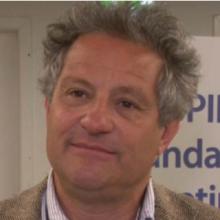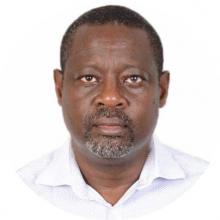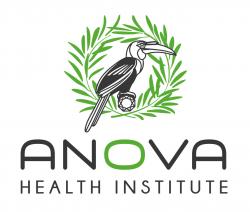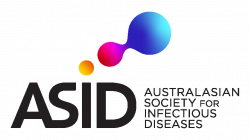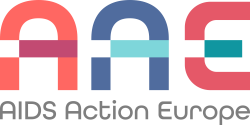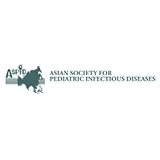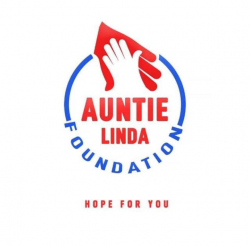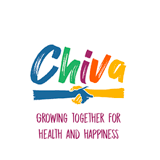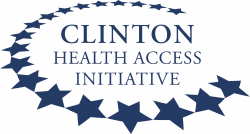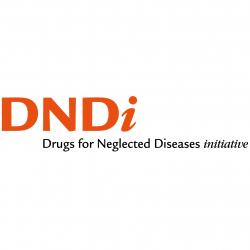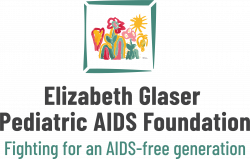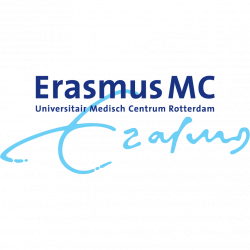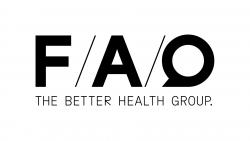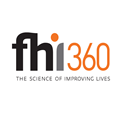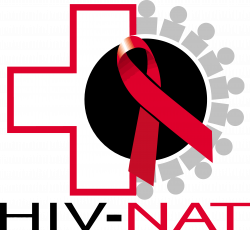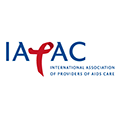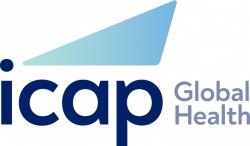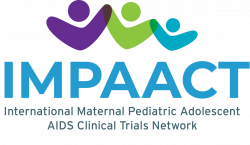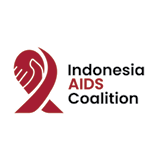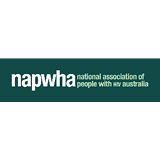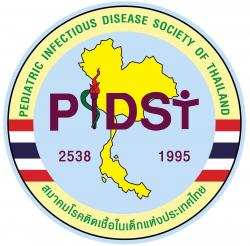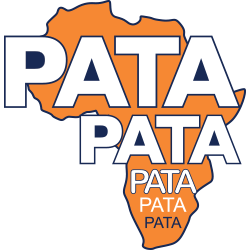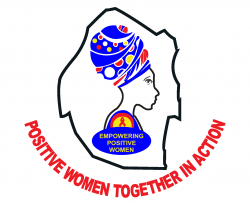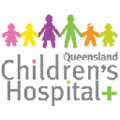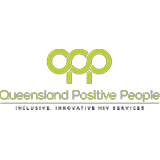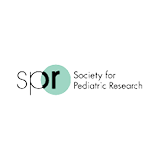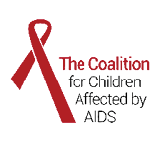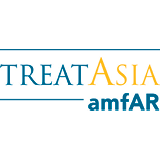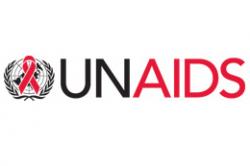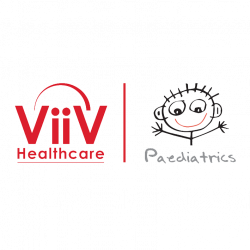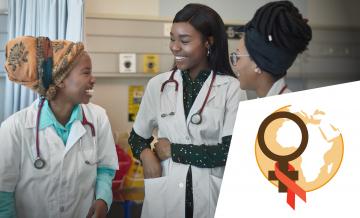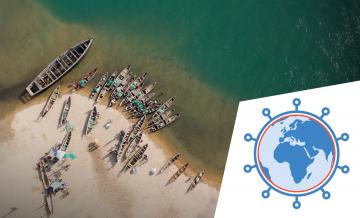-
The workshop has been accredited by the European Accreditation Council for Continuing Medical Education (EACCME®) for a maximum of 12.0 European CME credits (ECMEC®s).
-
The 17th International Workshop on Pediatrics & HIV 2025 will be hosted at Park Inn by Radisson Kigali.
Full Address: Avenue de Kiyovu & Res des Parcs Plot 5457, Kigali, Rwanda -
To stay updated on the relevant developments, make sure you are signed up for our newsletter.

17th International Workshop on Pediatrics & HIV 2025
What's New
Welcome
The 17th International Workshop on Pediatrics & HIV will take place in a hybrid format from 11-12 July 2025 in Kigali, Rwanda.
Although we have witnessed a dramatic global scale-up of antiretroviral treatment (ART) as well as efforts to prevent vertical HIV transmission in the last decade, there were 150,000 new pediatric infections in 2021 and an estimated 1.68 million children <15 years of age living with HIV. Children are substantially less likely than adults to be diagnosed, initiate treatment, and achieve durable viral suppression. Currently, only 54% are receiving ART, and treatment of pediatric HIV, particularly in infants and young children, remains complex and problematic, with continued use of suboptimal ART formulations and regimens.
Furthermore, adolescents are one of the most rapidly growing populations with HIV; in 2021, there were an estimated 410,000 new HIV infections among young people aged 15- 24 years, accounting for 27% of all new HIV infections globally. HIV infections among adolescent girls and young women are 65% higher than among adolescent boys and young men of the same age, with 4,900 new infections occurring in young women weekly. HIV remains one of the leading causes of death among adolescents living in Africa and among the top 10 causes of death in adolescents globally. The uptake of HIV testing among adolescents has remained low. Programs continue to struggle to reach and retain adolescents in care, and adherence to treatment has special challenges, particularly among those with perinatal infection aging up into adolescence and young adulthood.
As research to improve pediatric HIV diagnosis and care is ongoing, new scientific questions of critical importance have also emerged. In settings with mature ART programs, an increasing proportion of new pediatric infections is attributed to women acquiring HIV infection during pregnancy and breastfeeding, periods of markedly increased risk of HIV acquisition for the mother. However, the use of newer, highly effective long-acting pre-exposure prophylaxis (PrEP) drugs to prevent HIV acquisition has been limited in pregnant and breastfeeding women due to the limited available data on the pharmacokinetics and safety of these drug during these periods and limited availability in low resource settings where most women with HIV reside. The introduction of the new long-acting agents for treatment and prevention provides important opportunities to identify innovative new approaches and address the next generation of questions around implementation, uptake, and persistence in adolescents and pregnant and breastfeeding people. The use of newer potent ART regimens, such as dolutegravir, by women living with HIV may affect the sensitivity of rapid nucleic acid diagnostic tests, complicating infant diagnosis.
Additionally, with more than 1.3 million pregnant women globally receiving ART, a new set of questions about the long-term impact of in utero and postnatal exposures to medications for those children HIV-exposed but uninfected (CHEU) are emerging. Currently, the global population of HIV-exposed uninfected children and adolescents is estimated at 14.8 million, including over 8 million with in-utero ARV exposure. The importance of surveillance of the safety of new ARVs in pregnancy is underscored by the initial signal of an association of neural tube defects with periconception dolutegravir exposure which was shown to be erroneous after sufficient numbers of exposures had been documented.
Innovation in early infant diagnosis such as point-of-care tests has facilitated earlier identification of HIV infection during infancy, providing exciting new opportunities to study acute infection and very early treatment in neonates and promising remission strategies.
However, despite the critical importance of these topics, research in pediatric, adolescent, and maternal HIV infection is often neglected at major scientific HIV conferences. Therefore, in collaboration with leading experts in the field, we continue our highly focused international workshop on the prevention and treatment of pediatric HIV.
The overall objective of the International Workshop on Pediatrics & HIV is to stimulate research that will advance prevention and treatment strategies for infants, children, and adolescents. The workshop aims to provide a platform for presentation and discussion of the latest developments in the field, to gather experts involved in pediatric and perinatal HIV, and to promote both diversity and the next generation of research in the field The workshop has been highly effective in attracting presentation of top-level research in pediatric and maternal HIV; of 248 oral abstracts presented at the past workshops in 2013-2023, 148 (60%) have resulted in scientific publications.
Workshop Chairs
Local Co-Chair
General Information
- Clinicians
- Nurses
- Industry specialists working in academic settings, hospitals, and non-governmental organizations (NGO)
- Enhancing communication and encouraging collaboration between junior and senior investigators, north and south, and academia, governmental public health agencies, and industry to promote advances in HIV prevention and care in children, adolescents and families.
- Disseminating knowledge and data exchanged by workshop participants beyond the audience of the live event through posting of all presentations on the meeting website, thus maximizing the impact of the meeting by reaching the whole HIV research community.
- Providing updates on the latest research on new pediatric antiretroviral drugs and treatment and prevention strategies in children and adolescents.
- Understanding how to optimize recognition and treatment of advanced HIV disease in children and adolescents.
- Providing updates on new strategies for HIV prevention in children, adolescents and pregnant women, including long-acting antiretroviral agents and HIV vaccines.
- Evaluating effectiveness of and gaps in programs for the prevention of perinatal HIV transmission and interventions to improve such programs, including evaluation of early infant diagnosis in the current ART era.
- Sharing results of implementation science research on how to optimally implement programs for prevention or treatment of HIV in infants, children, adolescents and pregnant women in developing countries.
- Understanding the complications of long-term HIV infection and its therapy, to enable improved management of HIV in children and adolescents.
- Providing update on prevention, diagnosis and treatment of coinfections, such as tuberculosis and hepatitis C, in children and adolescents.
- Describe the changing epidemiology of the pediatric HIV epidemic world-wide and the latest recommendations for pediatric and adolescent HIV treatment.
- Summarize optimal prevention, diagnosis, treatment and management strategies against HIV infection in infants, children, adolescents, as well as in pregnant and postpartum women.
- Describe potential complications of HIV and latest HIV treatments in children, adolescents, and pregnant and postpartum women.
- Summarize approaches to prevent, diagnosis and treat important coinfections in HIV-infected children and adolescents.
- Summarize strategies to improve perinatal HIV prevention programs and to better understand continued risk for perinatal transmission in the current era of ART.
- Describe special issues related to HIV infection in adolescents and young people, including mental health challenges, as well as new HIV prevention modalities and programming options for the young population.
- Understand new long-acting prevention technologies and their role in the prevention of HIV in adolescents and pregnant women.
Practical Information
Any individual who feels discriminated against, harassed, disrespected, or marginalized is encouraged to report the incident(s) to VE and AME via info@amededu.com or to one of our on-site personnel.
Any participant who is found to have exhibited any inappropriate conduct or behavior against others may be removed from the program.
Fees and Conditions
|
Regular Delegates- |
Regular Delegates- |
Industry* - In-Person |
Industry* - Virtual | |
|---|---|---|---|---|
|
Early Fee (payment before/on 13 December 2025) |
€595 |
€495 |
€795 | €695 |
|
Standard Fee (payment before/on 11 May 2025) |
€745 |
€595 |
€995 | €895 |
|
Late Fee (Payment from 12 May 2025) |
€795 |
€695 |
€1,095.00 | €995 |
|
Local HCPs |
|
|
Standard Fee (payment before/on 11 July 2025) |
€150 |
|
Fee Waivers |
|
|---|---|
|
Early-Career Investigators / Academia from Resource-Limited Settings (RLS)* WITH accepted abstract |
50% Off Early Fee |
|
Early-Career Investigators / Academia from Resource-Limited Settings (RLS)* WITHOUT accepted abstract |
50% Off Current Regular Fee |
|
NGO Representatives / Government Representatives (i.e. MOH, NIH, NIAID, etc.) / Advocates |
50% Off Current Regular Fee |
|
Members of Endorsers |
25% Off Current Regular Fee |
|
Sponsors |
Contact Secretariat |
*Countries included in the low-income and middle-income economies list of the World Bank Classification
Important
-
We strongly advise that you register early to ensure your registration. Registration will close when the capacity of the venue is reached.
-
Submission of your online registration does not guarantee that your registration has been accepted. Your registration is final when full prepayment has been received and a confirmation of your registration has been sent.
- Access to all scientific sessions, including poster area
- Workshop pack, including abstract book and program
- Refreshments during the coffee breaks
- Buffet lunch on workshop days
For virtual attendees only:
- Access to all scientific sessions
- Digital workshop pack, including the program
IMPORTANT:
- No day rate is available
- Payment can only be made by credit card.
- Virology Education reserves the right to cancel improper registrations. Claims for a refund will not be honored.
IMPORTANT: The discount is offered to the presenting author only.
To be eligible as an early-career investigator, one should either be a current Master/PhD student or have obtained an MD/PharmD/PhD degree in the last five years. An application form needs to be completed by a supervisor and received by the Virology Education secretariat at least two weeks prior to the start of the workshop. Virology Education will contact the early-career investigator with instructions regarding the registration procedure.
- Cancellation before/on 11 June 2025: 50% refund (minus an administration fee of €40)
- Cancellation after 11 June 2025: Unfortunately, no refund will be given
If you are unable to attend the workshop, a substitute delegate is always welcome at no extra charge, provided that a letter of authorization from the original participant has been received and the conference secretariat has been notified of the name of the substitute delegate before 27 June 2025. A statement (email/letter) of cancellation must be sent to Virology Education.
1. Proof of accreditation
2. Valid identification (e.g. passport)
3. A letter from your assignment giver stating the details of your assignment (e.g. editor)
4. At least 3 previous written assignments in recognized outlets on HIV. If you are a freelance journalist, the assignments can be from different (recognizable) news outlets. Links to online publications are accepted
5. The website of the publication(s)/blog(s) that will be featuring your story on this workshop
A complimentary or reduced registration fee may apply for accredited media participants depending on availability. Preference will be given to credible print and online news sources. Please contact the conference secretariat for registration conditions.
We would like to receive a copy of your workshop report/ article once it is finalized.
All credentials will be verified by the Organizing Committee of the Workshop. Media representatives are kindly requested to register by sending the above-mentioned information to info@amededu.com.
Important: Media is restricted to the written press. Recording on film or photo is not allowed. Virology Education will request a copy of the written piece once it is finalized. Media representatives must also agree to abide by the AIDS 2024 embargo policy: https://www.iasociety.org/conferences/aids2024/media/conference-embargo-policy
Preliminary Program
The below times are set in Central African Time (CAT). Please, use this tool to convert the timing into your time zone.
Friday, 11 July 2025
Saturday, 12 July 2025
Abstracts
-
Co-submission of abstracts with IAS 2025 is allowed. You can submit your abstract(s) to both Pediatrics & HIV 2025 and IAS 2025 as long as you comply with the IAS 2025 embargo policy. The co-submission agreement does not apply to IAS 2025 late-breaker abstracts.
- Pediatrics & HIV 2025 accepts new original data as well as encored abstracts. All abstracts must focus on Pediatrics & HIV and contain up-to-date information at the time of the workshop.
-
We are pleased to offer 50% discount on the Early Fee for early-career investigators and academia from low-income and lower-middle-income countries with an accepted abstract. The requirements for the application are specified here.
-
Abstract submitters are strongly encouraged to use person-first language in their abstracts. View the video tutorial and guidelines here
- Abstract presenters are expected to attend the workshop in-person to present their abstract. Please contact the workshop secretariat if this is not possible.
Abstracts can be submitted under the following categories:
- Antiretroviral Treatment in Infants, Children, and Adolescents (Including ARV Switch, Toxicity, Drug Resistance)
- Clinical Management of Infants, Children, and Pregnant/Breastfeeding Persons (e.g., Monitoring, Differentiated Care)
- Coinfections/Complications in Infants, Children, Adolescents, and Pregnant/Breastfeeding Persons with HIV (e.g TB, CMV, RSV, COVID)
- Clinical Issues in HIV Negative Infants Exposed to HIV
- Prevention of Vertical HIV Transmission – Interventions and Implementation
- HIV Prevention & Treatment in Pregnant and Breastfeeding Persons
- Clinical Management Issues Specific to Adolescents (e.g. Transition to Adult Care)
- HIV (and STI) Prevention in Adolescents
- Pediatric HIV Case Finding Including Early Infant Diagnosis
- Background: A concise statement of the issue under investigation or a hypothesis;
- Material and Methods: The experimental methods used (including the statistical analyses employed);
- Results: Specific findings (promises such as "to be completed" or "to be presented" are not acceptable);
- Conclusions: A summary of findings that are supported by your results (statistical analyses used to support the conclusions, where appropriate, should be included; concluding statements such as "the results will be discussed" are not acceptable).
Please note that abstracts cannot be accepted if tables or graphs are included. The maximum word count for the abstract body is 500 words.
Abstracts are considered official communications to the conference and will be treated confidentially. Submitters of accepted abstracts agree to attend the meeting and present their abstract as scheduled.
We encourage you to use person-first language in your abstract(s). View our guidelines here: https://academicmedicaleducation.com/person-first-language
Posters need to meet the following dimensions A0 size (approx. 33" x 47") in portrait format.
Please display the number of your poster in the upper right corner of your poster.
Once onsite:
Poster presenters are requested to stand near their posters during the poster session.
We advise you to prepare hand-outs of your poster on Letter or A4 format.
Please hang your posters as early as possible. All posters must be displayed from the opening session to the closure of the meeting.
Pushpins and/or velcro will be provided.
Workshop Chairs 2025
Scientific Committee
We are proud to present the members of the committee:
-
Adam Bartlett, BSc, MBBS, MPHTM, PhD, FRACP - Sydney Children's Hospital / Kirby Institute, Australia
-
Ulrich von Both, MD, FRCPCH - Dr. von Hauner Children's Hospital, Germany
-
Jason Brophy, MD, MSc, DTM, FRCPC - Children's Hospital of Eastern Ontario, Canada
-
Ellen Chadwick, MD - Ann & Robert H. Lurie Children’s Hospital of Chicago / Northwestern University Feinberg School of Medicine, United States
-
Anita De Rossi, PhD - University of Padova / Istituto Oncologico Veneto (IOV)-IRCCS, Italy
-
Marinella Della Negra, MD, PhD - Hospital Emilio Ribas, Brazil
-
Brian Eley, MD - University of Cape Town, South Africa
-
Albert Faye, PhD - Denis Diderot University, Paris, France
-
Rashida Ferrand, MBBS, FRCP, PhD - London School of Hygiene and Tropical Medicine / Biomedical Research and Training Institute, Zimbabwe
-
Patricia Flynn, MD - St. Jude Children's Research Hospital, United States
-
Tessa Goetghebuer, MD - Office de la Naissance et de l'Enfance / CHU Saint-Pierree, Belgium
-
Ali Judd, PhD, University College London, United Kingdom
-
Valériane Leroy, MD - Inserm, Paris, France
-
Chewe Luo, MD, PhD - UNICEF, United States
-
Dorothy Mbori-Ngacha, MBChB, MMed, MPH - Independent Consultant, Kenya
-
Immaculate Mutisya, MMed - Centres for Disease Control and Prevention, Kenya
-
Sharon Nachman, MD - SUNY Stony Brook / IMPAACT, United States
-
Tim Niehues, MD, Helios Centre for Child and Adolescent Health, Krefeld, Germany
-
Clare Nourse, AM, BA, MB, BCH, BAO DCH, MRCPI, FRACP, MD - Children's Health Queensland / University of Queensland, Australia
-
Paul Palumbo, MD - Dartmouth-Hitchcock Medical Center, United States
-
Martina Penazzato, MD, MSc, PhD - World Health Organization, Switzerland
-
Kathleen Powis, MD, Massachusetts General Hospital, United States
-
Natella Rakhmanina, MD, PhD, FAAP, FCP, AAHIVS - Elizabeth Glaser Pediatrics AIDS Foundation / Children’s National Hospital, United States
-
Theodore Ruel, MD - UCSF Benioff Children's Hospital San Francisco, United States
-
George Siberry, MD, MPH, FAAP, FPIDS - United States Agency for International Development (USAID), United States
-
Lynda Stranix-Chibanda, MBChB, MMed - University of Zimbabwe, Zimbabwe
-
Tavitiya Sudjaritruk, MD, ScM, PhD - Chiang Mai University, Thailand
-
Graham Taylor, MD - Imperial College, United Kingdom
-
Claire Thorne, BA, MSc, PhD - University College London, United Kingdom
-
Priscilla Tsondai, MBChB and MPH, International AIDS Society, South Africa
-
Rachel Vreeman, MD, MS - Icahn School of Medicine at Mount Sinai, United States
Scholarships
Virology Education (VE), with support from the industry, is offering scholarships to attend Pediatrics & HIV 2025 from 11-12 July 2025 in Kigali, Rwanda.
The scholarships are supported by industry. These companies will have no control, influence, or involvement in selection of any attendees.
Virology Education is proud to support participation from professionals from underrepresented communities. We strongly recognize the value of conducting our programs with a diverse and inclusive representation of the scientific and medical global community, welcoming a range of backgrounds, experiences, and opinions and embracing the benefits that these differences bring. This diversity and equity are essential to our mission of advancing clinical care and scientific research worldwide.
What does the Scholarship Cover?
-
Registration Scholarship:
- Registration only
-
Partial Scholarship:
- Registration
- Accommodation
-
Full Scholarship:
- Registration
- Accommodation
- Travel
What is Expected from the Scholarship Recipents?
All scholarship awardees are required to attend the full meetings. Awardees must sign in at the beginning of each meeting day and sign off at the end of each day as requested by the Workshop Organizer. At the close of the Conference, awardees must have completed the daily and overall conference evaluations.
Recipient will provide post-meeting feedback and a summary about his/her conference experience within one month after the end of the workshop. The feedback questionnaire will be an online survey with the recipient providing feedback on their experience at the workshop, scholarship procedure, and how they will implement the knowledge acquired at the meeting in their daily practice. The questionnaire will be sent to each recipient by email within one week after the conclusion of the workshop.
Eligibility
Applicants must:
- Be proficient in English to interact with faculty and fellow attendees
- Be actively involved in the field of Pediatrics & HIV
- Be able to show benefits to their patients / research / community from attending the meeting
- Be willing and able to share information learned at the meetings with a larger community
- Be eligible to obtain a visa for travel. Declare that she/he is able and willing to fund all other costs beyond the scholarship that are involved in attending the workshop, e.g. all other hotel, travel and subsistence expenses NOT covered by the scholarship.
- Declare to take out her/his own insurance policies (for travel, liability, illness and/or other necessary insurances in relation to her/his participation to the conference).
- Workshop organizer will automatically decline all scholarship applications that do not conform to the eligibility terms
Application Procedure
The scholarship applications must be submitted online through our Scholarship Application Portal by 25 April 2025. The applicant will be asked to submit a motivational letter (max. 200 words) describing how their patients/research/community will benefit from the knowledge gained at these meetings, and their knowledge dissemination strategy, a CV, and a letter of recommendation (optional).
- All applications will be acknowledged upon receipt.
- All applications will be reviewed by an independent Scholarship Review Committee
- Successful applicants will be sent a scholarship agreement.
- After receipt of the signed scholarship agreement, successful applicants will receive instructions for travel arrangements.
- All applicants will receive notification of the application status no later than 1 month prior to the meeting they are planning to attend.
Selection Criteria
- Professional background
- Quality of the abstract (if accepted)
- Country of residence
- Recommendation by your supervisor
- Demonstrable benefits to patients / research / community by the knowledge to be gained at this meeting
- Strategy of knowledge dissemination
- Early-Career Investigator
Important
- Incomplete applications will not be considered. Workshop Organizer cannot be held responsible for any incorrect information that is submitted through the scholarship application portal.
- All travel arrangements will be made by Workshop Organizer in collaboration with their preferred business travel partner. Workshop Organizer cannot reimburse any travel costs made by participants themselves.
- Retrospective applications will not be considered.
- Scholarship recipients must attend the entire conferences.
- Scholarship recipients are committed to attend the meetings in person. If they fail to do so, they will be charged the full amount of the travel and accommodation costs incurred and will be excluded from applications for future scholarships of Workshop Organizer.
- Scholarships are non-transferrable.
- Workshop Organizer cannot guarantee awarding the scholarship to prospective scholarship recipients until the confirmation of available funds. In the event that sufficient funding for the scholarship is not available, Workshop Organizer will not be liable for any expenses or damages incurred by the prospective scholarship recipient with regards to the scholarship application and/or preparation for the meeting.
- Applications will be considered until the exhaustion of funds.
- Scholarship recipients will be responsible for all other costs associated with conference attendance.
- Workshop Organizer will not be liable for any injury, death, damage, loss, delay, cost, expense, or inconvenience, causes of action claims and suits for property damage, theft of property or personal injury (including death) arising in connection with the scholarship and participation in the workshop.
- Workshop Organizer reserves the right to make the final decision regarding all applications, which cannot be disputed.
Endorsers
Pediatrics & HIV 2025 is endorsed by societies and organizations. Their support and collaboration are key to the success of this workshop!
If you would like your organization to endorse the International Workshop on Pediatrics & HIV 2025, please contact Magda Sevlidou at magda.sevlidou@amededu.com
Support Our Initiative
Financial backing helps us deliver an impactful meeting experience to the benefit of healthcare professionals and researchers interested in Pediatrics & HIV.
This collaboration plays a vital role in both the organizational as well as scientific success of the program.
To show your commitment to the cause, get in touch with us for a tailored
support package by contacting Ms. Karin Siebelt at Karin.Siebelt@amededu.com.
Benefits of Support
By supporting this program, we can offer the following advantages for your company.* Please contact us for the most recent support level benefits for this program.
- Symposium opportunities
- Non-commercial interviews with company representatives
- Verbal acknowledgement during the program
- Discounted and complimentary registrations for your representatives
- Company acknowledgement on digital meeting materials including but not limited to newsletters, flyers, the streaming platform, and our website
- Company acknowledgement on printed meeting materials including but not limited to banners and the program book
- Digital and printed advertising opportunities
- Social media shout-outs
- Logo on the conference bag
*Subject to the support level.
Previous Editions
- 16th Edition - International Workshop on Pediatrics & HIV 2024, Germany
- 15th Edition - International Workshop on HIV & Pediatrics 2023, Australia
- 14th Edition - International Workshop on HIV Pediatrics, 2022, Canada
- 13th Edition - International Workshop on HIV Pediatrics, 2021, Virtual
- 12th Edition - International Workshop on HIV Pediatrics, 2020, Virtual
- 11th Edition - International Workshop on HIV Pediatrics, 2019, United States
- 10th Edition - International Workshop on HIV Pediatrics, 2018, The Netherlands
- 9th Edition - International Workshop on HIV Pediatrics, 2017, France
- 8th Edition - International Workshop on HIV Pediatrics, 2016, South Africa
- 7th Edition - International Workshop on HIV Pediatrics, 2015, Canada




















